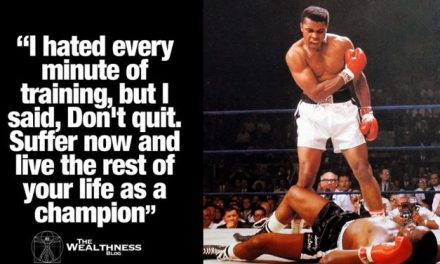All of marketing ultimately comes down to one thing: creating relationships. If you dont understand this basic principle, you will ultimately fail as a marketer. Indeed, you will fail in life as well.
Think of it:
- What is publicity? It is simply creating relationships with people in the media who, if they like your product, idea, or service, will pass on that information to their audience in the form of reviews, interviews, stories, or notices.
- What is distribution? It is simply creating relationships with stores, wholesalers, and sales representatives who will make your products available to retail customers.
- What are special sales? They are based on creating relationships with catalogs, premium buyers, governments, specialty retailers, and others who will buy your books in quantities.
Wherever you look in business, relationships are what make things happen: networking, the old boy network, the new girl network, customer lists, sales reps visiting their customers, publicists talking with the media, luncheon meetings, conventions, trade shows, chat groups, newsletters, and so forth.
They all have one thing in common: Their primary purpose is to enhance communication and further relationships.
When I talk about creating relationships, I am really talking about making friends. Because that is what every good marketer really does: They make friends.
When you begin to think of marketing in this way, everything about marketing becomes more fun. Suddenly there is no foreignness, no fear, no feelings of inadequacy. We can all make friends. Its a talent weve had since we were little children. Use it.
A Simple Technique for Truly Working Smarter (and Faster), But Not Harder
It might sound surprising that this works extraordinarily well, yet it really does.
Imagine that youre the best expert in the world in whatever it is that youre about to do. Not arrogantly, since people who are exceptionally talented are rarely arrogant. Rather, you are a brilliant artist in that area and you love doing whatever it is you have to do.
So, for example, if youre about to write a sales letter, imagine that youre the best copywriter in the world. If youre going to raise money for your company, youre the best fundraiser in the world. If youre about to go on an important sales call, youre the best salesperson in the world. If youre going to write software, youre the best software developer in the world. And so on.
When you approach each task from this perspective, the quality of your work will soar and the time you take doing each task will shrink.
Decide and Commit to What You Really Want
The most important thing is to decide exactly what you really, really want to accomplish and what you are absolutely committed to making happen for your business. Believe it or not, this decision and this commitment will pave the road for greater profits and greater satisfaction than you can possibly imagine.
The key is taking both steps: deciding and committing.
The decision part is necessary to focus your mind, to concentrate it single-pointedly on your vision, but by itself wont spur you to action.
It is the commitment part the unshakable belief that you will do whatever it takes to get exactly what you want that makes the difference.
If this sounds too simple, then you may not understand one or the other of the twin concepts what you really want and absolutely committed.
Dwell on those two phrases.
Put some personal meaning into these words and you will be well on your way.
Invest 5 Seconds Save Countless Hours
If you want to save yourself a lot of time and confusion, get in the habit of taking the 5 Second Checkup before everything you do.
Ask yourself one question, answer it honestly, and youll know when youre wasting time or procrastinating, and more importantly youll know why. The question is this:
Am I doing this to accomplish something or to avoid something?
Let your answer be your guide
Use the Telephone!
I love email. Its fast and efficient. But 60% of people dont type and even more arent comfortable writing. So, use the phone.
Im always meeting successful business people who have built their business by simply handing out their 800 number a lot.
I personally dont like to talk on the phone. Its easy to hire someone else to make your calls several times each week. It works.
Look at Your Web Site from Your Customers Perspective
Ive been consulting to Fortune 500 companies for eight years and the single most common mistake they make online is to create a Web site about the company instead of about the customer.
Im suggesting an alteration in approach, not technology.
This isnt something that needs to cost a lot of money.
Look at your site. How many of the buttons or links say things like Our Products, Our People, Our Special Offers?
Change those to read, Things You Can Use, People Who Can Help You, Special Deals For You.
One button that says About Us is plenty. But, of course, its more than just links. Its all about becoming a customer-first kind of company. The sort of company that tackles every problem from the other side of the table. If I can get you to start with your Web site, Ive done my good deed for the day.
Create A Marketing Robot That Makes You Money 24/7
Create a marketing robot. That is, take 3 to 7 very short articles on how to do something specific that your prospects want to know. Add a one paragraph sales pitch to the end of each of those articles.
Load all the articles into an autoresponder.
Now you have a marketing robot that will work for you 24/7, all year long. It will promote you, sell you, and deliver new customers to you, all automatically.
John Kremer is the author of 1001 Ways to Market Your Books, High-Impact Marketing on a Low-Impact Budget, and The Complete Direct Marketing Sourcebook. He is also editor of the Book Marketing Update newsletter. He is available as a consultant for publishers and authors who want help in creating their marketing plans, setting priorities, and discovering new markets for their books. He has consulted with bestselling authors, publishing companies that have grown to $100 million businesses, and up-and-coming authors. For more about him and his services, see his Web site at bookmarket.com










